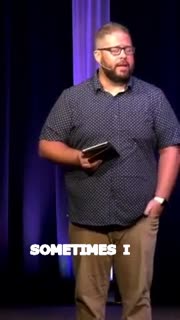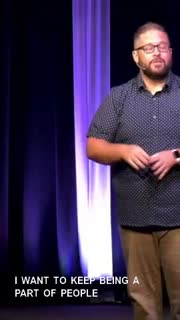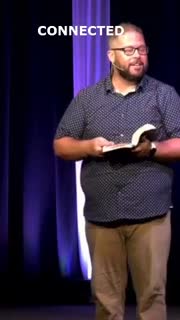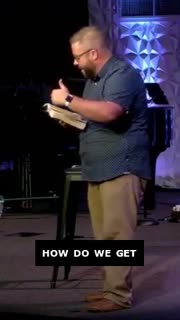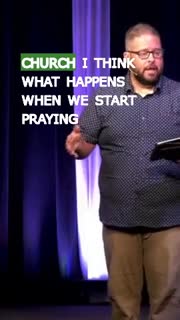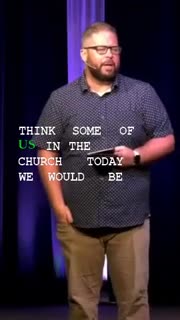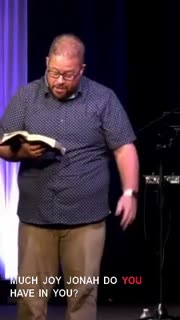Embracing God's Call: Love Your Neighbors
Devotional
Sermon Summary
Bible Study Guide
Sermon Clips
### Quotes for Outreach
1. "Sometimes I think we've missed the Jerusalem part in the church. Like Christians, sometimes we miss the Jerusalem part, the right here part, and somehow we just skip right to the ends of the earth. Somehow we're all about the ends of the earth." [23:21] (21 seconds)
2. "I want to keep being a part of people knowing Jesus and then running to him instead of away from him. And here's the thing, like, and I got really excited about this first service and was like kind of sucking air talking about it because it's like, man, from that moment on I went to Lincoln so fired up that fall." [29:04] (24 seconds)
3. "How closely connected are the two greatest? Can I love God fully without loving my neighbor? I want to read you guys a parable. I don't want you to look it up. I don't, it's not going to be on the screen. I just want you to listen to this story Jesus told. I think it, I think it brings to light what's some of what's going on here." [47:45] (17 seconds)
4. "How do we get ready then? How do we prepare for the unexpected coming of the Lord? How do we be ready to be in his presence forever? Unlike Jonah, to stop running from his presence but to be there and to be in his presence and to be in it. How do we prepare for that?" [52:00] (16 seconds)
5. "Church, I think what happens when we start praying names, it's pretty crazy because what's happening is God's not so much going to change them before he changes you. And as you change, the witness." [59:02] (24 seconds)
### Quotes for Members
1. "I think some of us in the church today, we would be more comfortable going, we would be more comfortable sending resources halfway across the world to tell people about Jesus than we feel about going across the street or next door and doing it. Why is that?" [23:21] (22 seconds)
2. "How badly does Jonah hate Nineveh? And why? Like, he must hate Nineveh to do what he's, to take the trip he's about to take. He, there must be. See, Nineveh, Nineveh was the capital of Assyria. Just to give you some context. And the Assyrians were some, I mean, some pretty nasty people." [37:34] (26 seconds)
3. "How much Jonah do you have in you? Seriously. Because maybe for some of you today, like you just need to be looked at and you just need to be asked, is all the running away, like, are you done with that yet? Has all of it been worth it? Are you ready to stop running from God?" [47:14] (23 seconds)
4. "You didn't feed the hungry. You didn't clothe the naked. You didn't minister to the least of these. You didn't welcome strangers. I'm asking church, do you hear it? On the last day, Jesus will come and he will ask a question and it will be a pretty straightforward question." [53:48] (21 seconds)
5. "Eugene Peterson in one of his leadership books said about Jonah, he said Jonah's sulking and disappointment came from a failure of imagination, a failure of heart. He had no idea the largeness of his love and mercy and salvation. He had reduced his vocation to his own performance." [58:04] (21 seconds)
Ask a question about this sermon
1. "Sometimes I think we've missed the Jerusalem part in the church. Like Christians, sometimes we miss the Jerusalem part, the right here part, and somehow we just skip right to the ends of the earth. Somehow we're all about the ends of the earth." [23:21] (21 seconds)
2. "I want to keep being a part of people knowing Jesus and then running to him instead of away from him. And here's the thing, like, and I got really excited about this first service and was like kind of sucking air talking about it because it's like, man, from that moment on I went to Lincoln so fired up that fall." [29:04] (24 seconds)
3. "How closely connected are the two greatest? Can I love God fully without loving my neighbor? I want to read you guys a parable. I don't want you to look it up. I don't, it's not going to be on the screen. I just want you to listen to this story Jesus told. I think it, I think it brings to light what's some of what's going on here." [47:45] (17 seconds)
4. "How do we get ready then? How do we prepare for the unexpected coming of the Lord? How do we be ready to be in his presence forever? Unlike Jonah, to stop running from his presence but to be there and to be in his presence and to be in it. How do we prepare for that?" [52:00] (16 seconds)
5. "Church, I think what happens when we start praying names, it's pretty crazy because what's happening is God's not so much going to change them before he changes you. And as you change, the witness." [59:02] (24 seconds)
### Quotes for Members
1. "I think some of us in the church today, we would be more comfortable going, we would be more comfortable sending resources halfway across the world to tell people about Jesus than we feel about going across the street or next door and doing it. Why is that?" [23:21] (22 seconds)
2. "How badly does Jonah hate Nineveh? And why? Like, he must hate Nineveh to do what he's, to take the trip he's about to take. He, there must be. See, Nineveh, Nineveh was the capital of Assyria. Just to give you some context. And the Assyrians were some, I mean, some pretty nasty people." [37:34] (26 seconds)
3. "How much Jonah do you have in you? Seriously. Because maybe for some of you today, like you just need to be looked at and you just need to be asked, is all the running away, like, are you done with that yet? Has all of it been worth it? Are you ready to stop running from God?" [47:14] (23 seconds)
4. "You didn't feed the hungry. You didn't clothe the naked. You didn't minister to the least of these. You didn't welcome strangers. I'm asking church, do you hear it? On the last day, Jesus will come and he will ask a question and it will be a pretty straightforward question." [53:48] (21 seconds)
5. "Eugene Peterson in one of his leadership books said about Jonah, he said Jonah's sulking and disappointment came from a failure of imagination, a failure of heart. He had no idea the largeness of his love and mercy and salvation. He had reduced his vocation to his own performance." [58:04] (21 seconds)
